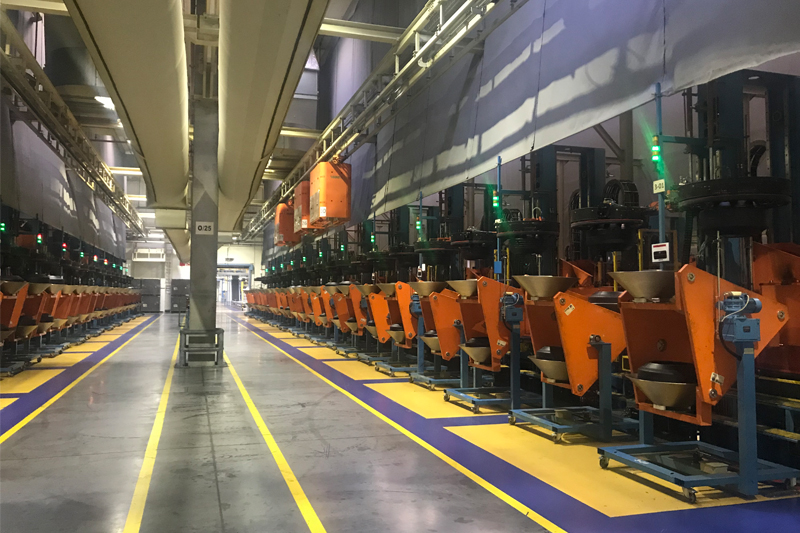
Bridgestone has announced that it is investing €36 million to digitise its manufacturing operations and create the smart factories of the future.
From 2019 onwards, the project will enable Bridgestone to respond faster and more flexibly to evolving customer demands, while enabling production to use less energy and produce less waste. The investment will also see Bridgestone employees upskilled to operate industry-leading digital technologies, that will subsequently help to improve resource efficiency and job satisfaction.
Improving efficiency, flexibility and sustainability
The €36 million smart factory project will see the full production process – covering manufacturing semi-finished products, energy supply, maintenance, production monitoring and production planning – transformed across eight European plants, across Poland, Hungary, Spain, Italy and France. These will benefit by saving energy, increased efficiency, reduced waste and simplified processes.
The first of these projects to be launched, ‘Smart Energy’, optimises the plants’ energy consumption and costs, which will allow energy savings of approximately 10 percent to be made. The ‘Smart Energy’ system creates a link between the production plans and energy consumption, and modelling these will optimise the energy requirement of tyre production.
The digitalisation of the plants will enable the data from tyre production to be stored, analysed and used by Bridgestone engineers in both Rome and Tokyo, to help design new and improved tyre models. Those new tyre model designs will be returned to the plant in a digital format, which will cut the production time of the first series of the new tyres in half.
Digitalisation will also play a major role in improving Bridgestone’s production efficiency by enabling the smart maintenance of the plants’ facilities. Artificial intelligence will be used to analyse data and forecast potential faults in machinery. The system will measure and analyse key parameters of the machinery with the help of sensors, and automatically suggest maintenance to avoid costly malfunctions. This new process will also help to optimise the planning of maintenance cycles.
The smart factory investment will also help to reduce the waste produced by Bridgestone EMEA across Europe. A stream of data on the production performance will be sent to a cloud-based database, where a purpose-built algorithm will look for connections between the production parameters and the features of the manufactured tyres. The results will be automatically forwarded to the on-site teams, who can then immediately take action and significantly reduce the number of production rejects.
Finally, the logistics processes of the Bridgestone plants will also be considerably simplified. The introduction of smart materials technology will mean that the plants’ specialists can digitally track and manage the path of prepared materials and semi-finished products within the plant. This will drastically simplify production planning and administrative processes, from mixing materials to warehousing.
Making Bridgestone EMEA future-ready
This €36 million investment comes following the success of Bridgestone’s earlier initiatives to digitise the tyre production process, such as the use of EXAMATION. EXAMATION is Bridgestone’s AI-based, high-productivity manufacturing technology, which measures and checks the quality parameters of tyres at 480 points – collecting 700 MB of data per tyre.
The investments will go hand-in-hand with training of the plant operators to master the correct handling of the latest digital technologies and maximise the potential of the investments. The dashboards and insights delivered by the smart factory will allow them to better steer and optimise the production process and ultimately contribute to greater autonomy and job satisfaction.
Adolfo Llorens, VP Manufacturing Bridgestone EMEA, commented: “This smart factory project will go a long way in making Bridgestone EMEA future ready. Not only will our processes become more efficient and more sustainable, but they will also lead to better products. For example, the digital machines we’ll be using apply algorithms that check the quality parameters of the tyres produced to improve the evenness of quality by 15 percent. I really can’t wait to see how this project evolves over the next four years.”








